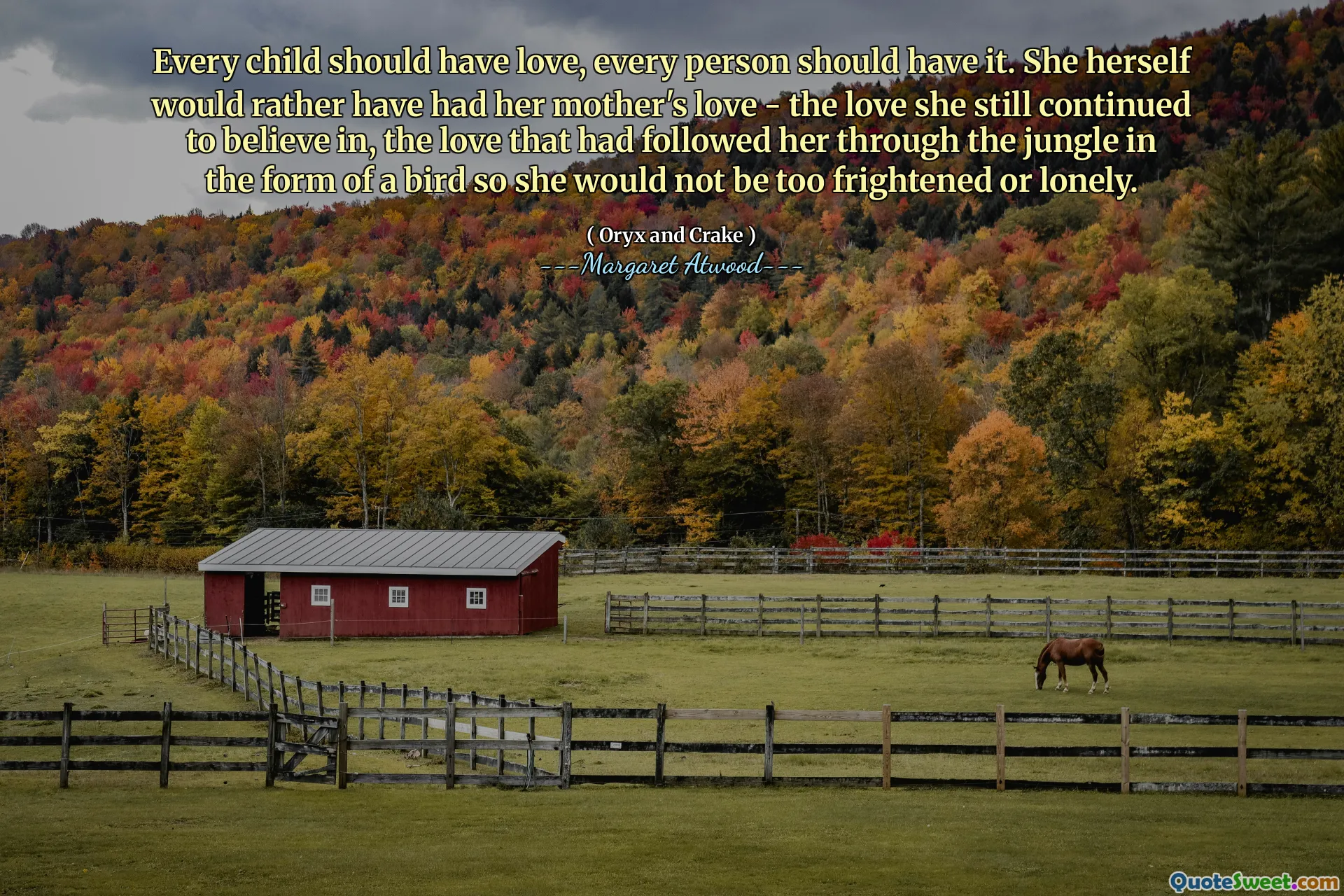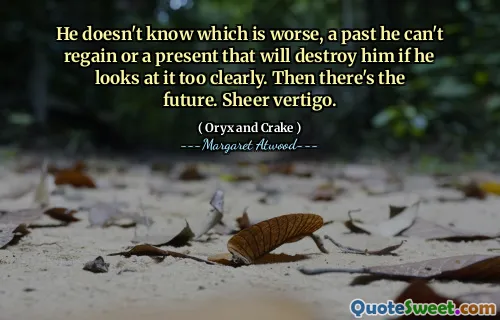
Every child should have love, every person should have it. She herself would rather have had her mother's love - the love she still continued to believe in, the love that had followed her through the jungle in the form of a bird so she would not be too frightened or lonely.
In "Oryx and Crake," the theme of love is poignantly explored through the protagonist's reflections on her lack of maternal affection. The deep longing for love is something every child deserves, highlighting the fundamental need for connection in human life. The character's yearning for her mother's love symbolizes the nurturing and emotional support that she feels was absent during her formative years.
This absence of love is depicted through a metaphorical bird that represents her hope and courage as she navigates through life’s challenges. It serves as a reminder of her enduring belief in love, despite its frailty. Ultimately, the narrative underscores how essential love is for personal development and emotional resilience, suggesting that a loving presence can alleviate fear and loneliness.






